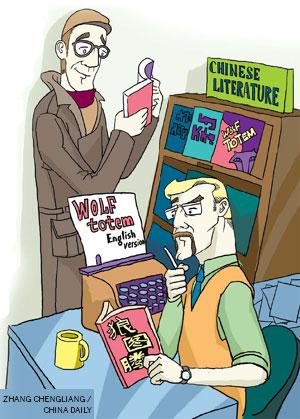A translator with an ear for both languages and the skill to move seamlessly between them is essential if a book is to be a success in another language
Publishers and authors in Beijing are making big efforts to write the pages of Chinese history through an increased push to translate Chinese literature.

Penguin Publishing, one of the bigger Beijing-based translators of Chinese fiction into English, has said they will begin doubling their efforts to produce translated Chinese literature for the western market, Jo Lusby, Managing Director of Penguin Publishing in Beijing told METRO.
In the 5 years Penguin Publishing has been operating in China, they have produced more than 20 translated books from six key Chinese authors, but Lusby says they hope to increase the number of Chinese translations two-fold in the coming years, producing between five to eight literary translations a year.
These efforts reflect signs of growing interest amongst western markets for Chinese fiction, and the best way to learn what's on the minds of another culture is by reading its fiction, Lusby said.
"Publishing tends to be a fairly true mirror as to what people are talking about," she said. "Now more than ever, people want to know what's going on in the minds of Chinese people."
But curiosity alone doesn't sell books.
Wolfgang Kubin, a well-known German translator and professor of Sinology at Bonn University in Germany says that more than anything else it's the quality of the translator that makes Chinese Literature sell well in the west.
Kubin, who is best known for his translations of Chinese poetry into German, says that the United States is a much bigger market for Chinese novels than anywhere else.
He attributes the popularity of Chinese fiction in the US to people like the translator, Howard Goldblatt, who is best known for translating the Chinese fiction novel Wolf Totem by Chinese Author Jiang Rong.
He says that it is a combination of understanding both the Chinese language and knowing what the readers want to read that make a translation successful.
"Skilled Translators, like Goldblatt, do not translate in the strict sense of the word," Kubin said. "They are skilled writers whose understanding of the piece allow them to rewrite it while keeping the original meaning."
With a skilled translator, a translated piece can end up reading better in English than it did in the original context, he says. But finding a skilled translator can be a challenge.
Lusby said that a combination of geography and linguistics present the biggest difficulties to finding the right person for the job. Because Penguin employs translators worldwide, it can be very difficult to bridge the gap between the author and the translator, she says.
"Literary translation is not a factory task, it is an art," she said. "And without the translator we don't have a final project."
Translations can take anywhere between five months to a year, depending on the length of the novel and the difficulty of the translation.
Though choosing which works to translate is a less sophisticated process.
"The way we select books to translate is fairly simple - if someone ends up reading a book they like, they suggest it for translation," Lusby said.
But, as with all businesses, Lusby admits that it's not solely about passion.
"It is a very financial viable project, we are not doing this for vanity," Lusby said.
China Daily





